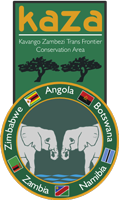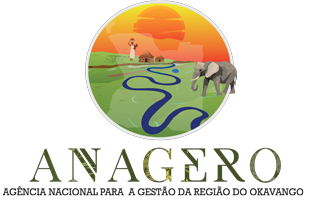In the heart of the Kavango Zambezi (KAZA) TFCA is Namibia’s Zambezi Region, and here situated along the Kwando River, the Sijwa Project, is not merely a venture; it’s a commitment to repurpose, reinvent, and rejuvenate. Initiated by the African Monarch Lodges, encompassing Nambwa Tented Lodge and Kazile Island Lodge, this innovative project is shaping a sustainable future while fostering cultural richness and community development.
At its core, the Sijwa Project is a testament to creative sustainability. It reimagines waste from the lodges and the local community, transforming recyclable materials into exquisite craft and art. Plastic, glass, and cans find new life as beautiful artifacts, a testament to the transformative power of conscious recycling.
The initiative goes beyond waste management, incorporating an organic permaculture nursery. Here, the sandy Namibian soil is enriched by composted food waste and super-strength worm juice, a process complemented by occasional dollops of elephant dung. This not only sustains a local food supply but mitigates the environmental impact of conventional food transportation.
The Sijwa Project is a harmonious blend of cultural preservation and economic empowerment. Serving as a cultural village and artisanal skills training centre, it provides a platform for local communities to showcase and enhance their traditional crafts. Visitors can immerse themselves in the vibrant local culture, interact with artisans, and witness firsthand the transformation of waste into art.
The holistic vision of the project extends to addressing unemployment, a pressing issue in the Zambezi Region. Designed to be self-sufficient, the Sijwa Project aims to employ over 60 community members, with each employee supporting up to 12 others in their village. Additionally, it seeks to educate scholars through its Junior Ranger School and Junior Sewing School, creating avenues for skill development and knowledge transfer.
A notable aspect of the Sijwa Project is its commitment to community and environmental conservation. Eight percent of all monthly revenue generated is dedicated to the Mayuni Conservancy, reflecting a pledge to give back to the natural surroundings that sustain the project.
As the project unfolds, there are ambitious plans on the horizon. The envisaged Junior Ranger School and an aluminium recycling workshop for tin cans are in the pipeline. Moreover, a kindergarten is envisioned to address an existing gap in the local educational landscape.
The Sijwa Project is not only about waste transformation and economic empowerment but also about innovative solutions to human-elephant conflicts. The Beehive Project, set to combat crop raiding, integrates sustainable vegetable growing, pollination, and honey production. The ingenious use of chili-bombs, crafted from elephant dung and crushed chilies, serves as a successful deterrent, highlighting the project’s commitment to coexistence.
Chief Mayuni, a staunch conservationist, has endorsed the Sijwa Project as a joint venture with the community. His approval, granted at a gathering of dignitaries in November 2018, marked the project’s initiation. Chief Mayuni’s subsequent visit in February 2021 testified to the project’s accomplishments, demonstrating resilience amid the challenges posed by the global pandemic.
Tinolla and Dusty, the driving forces behind the Sijwa Project, embody a “go big or go home” ethos. Their passion and dedication have transformed this initiative into a thriving hub of sustainability, cultural preservation, and community empowerment. As the Sijwa Project continues to evolve, it stands as a beacon of hope, showcasing that transformative change is possible when visionaries and communities unite for a common cause.













